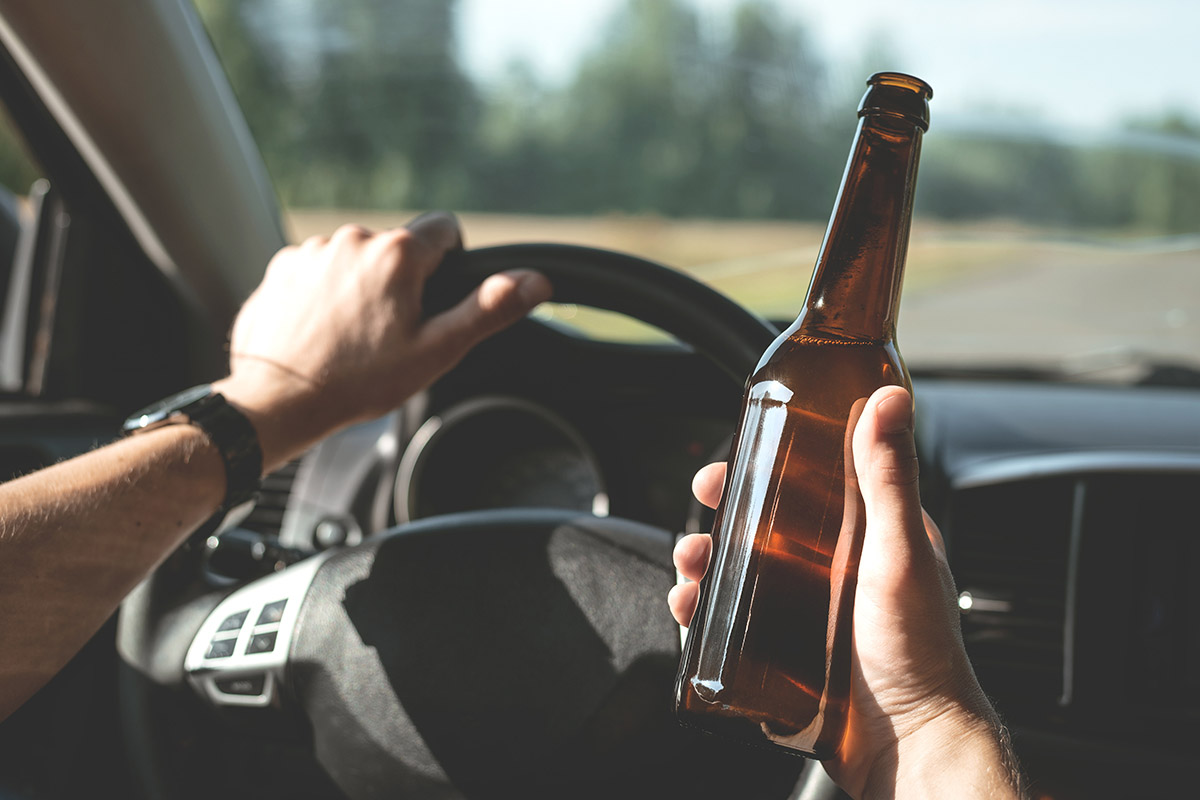An open container violation can lead to more legal problems than you think. If a police officer finds an open liquor container in your car, you can be cited for a Class C misdemeanor. But if the officer uncovers evidence you committed another offense, such as DWI or possession of illegal drugs, you may face significantly more serious charges.
Open Container Search Leads to Officer Finding Cocaine
Indeed, an open container often provides police with “probable cause” to search your vehicle without first obtaining a warrant. Consider this recent decision by a state appeals court in Dallas. In this case, a police officer observed a vehicle “with an obscured temporary license plate.” This is considered a traffic violation under Texas law, so the officer initiated a stop.
Suspicion of Criminal Activity During Traffic Stop
The defendant was the only occupant of the vehicle in question. The officer said that while asking the defendant for his license and registration he appeared to be “very nervous” and “was shaking.” This led the officer to suspect that “something else was going on besides just a routine traffic stop.”
Discovery of Open Alcoholic Container in Vehicle
At that point the officer observed “an open alcoholic container” in plain view on the center console next to the defendant. The defendant admitted it was an open beer container. The officer asked the defendant to exit the vehicle. The officer then proceeded to enter the vehicle so he could retrieve the open container as evidence.
Observation of Suspected Cocaine in Plain View
While reaching inside, the officer said he observed “a small piece of a white rock-like substance near the emergency brake handle.” The officer said the item was in “plain view” and he did not have to manipulate the emergency brake to see it. Based on his training and experience, the officer said he suspected the “substance” was in fact crack cocaine.
The defendant acknowledged the substance was cocaine. He said he “dropped some under the seat.” The officer searched that location and found additional cocaine and drug paraphernalia.
Defendant’s Challenge to Search on Constitutional Grounds
At trial, the defendant pleaded guilty, subject to his challenge of the officer’s search on constitutional grounds. Essentially, the defendant argued the officer lacked “reasonable suspicion” to initiate the original traffic stop. Both the trial court and the Court of Appeals rejected this argument.
Rejection of Challenge by Trial Court and Court of Appeals
The Court of Appeals explained the officer had “an objectively reasonable basis” to stop the defendant based on his obscured license plate. And as the trial judge noted, once the officer “observed the open container of alcohol in plain view,” he was further justified “in removing the defendant from the vehicle so the officer could safely retrieve the evidence.”
Speak with a Criminal Defense Lawyer Today
We Specialize in DWI, Drug & Open Container Cases
Obviously, you should never have an open container of alcohol while driving. But if you are stopped and questioned by the police, remember you do not have to volunteer any information that may be used to justify a search or arrest.
If you are charged with an open container violation, contact the qualified criminal defense attorneys at the Law Offices of Tad Nelson & Associates right away.



















